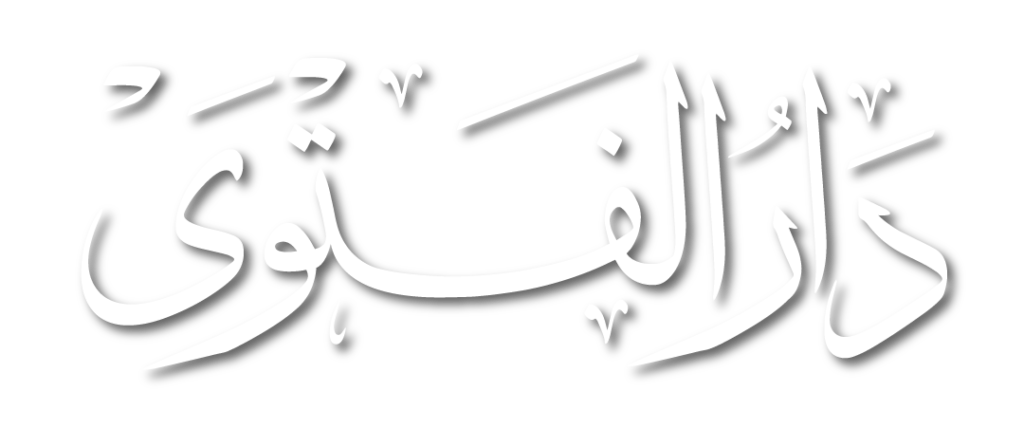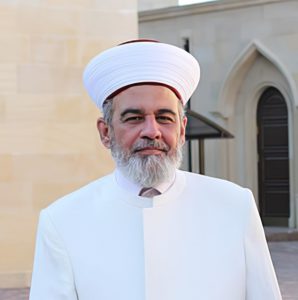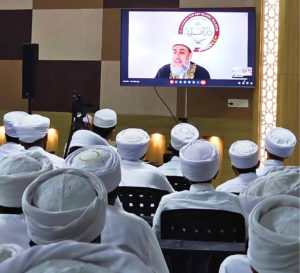I start in the name of Allah the Merciful
Praise be to Allah, and may Allah raise the rank of Prophet[1] Muhammad peace be upon him, and his Al and Companions, and protect his nation from that which he fears for it.
Islam is the Religion of all Prophets of Allah, starting with Adam and ending with Muhammad peace be upon him. In Arabic, Islam means submission. To believe in the heart and declare with the tongue:
“No one is God except Allah and Muhammad peace be upon him is the Messenger of Allah” is how one becomes Muslim. Uttering the Two Testifications (Shahadatan) is required of the person who is not already a Muslim. A Muslim is a believer and a follower of Islam.
The First Testification (Shahadah), i.e., “No one is God except Allah” means nothing deserves to be worshipped except Allah.”[2] The Second Testification, i.e., “Muhammad is the Messenger of Allah” includes believing that Muhammad peace be upon him was the last of the prophets,
that he was truthful in all he told about and conveyed from Allah (as were all the prophets before him), and that the Creator gave us prophets and messengers to guide us to worship Him[3] correctly. A Muslim must believe in all the prophets and messengers.
The Two Testifications are the essentials of belief in Islam; they are the foundation of the faith. The analogy of constructing a building is useful in explaining the importance of this basic belief. There will be no building without a concrete foundation. Likewise, there will be no benefit and fruitful results in the Hereafter without first having the correct belief.
This analogy illustrates the need to start from the beginning and build upward; before one can remain steadfast in the Religion, one must have the proper belief. Muslims firmly believe that only one Creator exists, Whose name is Allah,
and Muhammad peace be upon him is His prophet and messenger. Knowledge of and belief in this are the foundation of the faith, and all Muslims are united by this basic belief. The Muslim uses the mind as a guide because the mind and faith go hand-in-hand. Knowledge is essential since learning gives one strength and purpose.
The sound intellect and the explicit statements revealed to Prophet Muhammad peace be upon him affirm the belief in God’s existence and His other attributes. One must understand that Allah is neither His attributes nor is He other than them.
For example, one can say: “Allah has the attribute of Power.” However, one cannot say: Allah is power.” God has no faults or weaknesses. Allah the exalted, is flawless. His attributes are without flaw and are unchanging. God does not resemble any of His creations.
If Allah resembled any of His creations, then He would be susceptible to the same things to which the creations are susceptible. If Allah were susceptible to change, as the creations are, then He would be weak and created- as they are- and this is impossible.
Allah is without shape, without form, and without limitations. He does not resemble anything we see in the universe or anything that can be imagined, since imagination is part of creation.
Allah exists. Without comparing Allah to the creation, one can use common sense to prove the existence of the Creator. When one sees a building, one knows there is a builder; when one sees a painting, one knows there is a painter; when one sees the creation, one knows there is a Creator.
Allah is the Creator of everything in the universe. He created all the places, including the heavens, Earth, and what is in between. Allah exists without a place. He existed before He created any of the places. Allah existed eternally and places did not.
Allah exists now as He has been, i.e., without residing in a place, whether this place is the skies, Earth, Paradise, Hell, or any other place in the six directions[4].
Allah does not change. Change is a sign of need and need is not befitting to attribute to God. If a thing changes for the better then it was not perfect, to begin with, and if it changes for the worse, then it is no longer perfect. It is a fact that Allah is perfect. Therefore, Allah does not change.
Allah is not in Heaven. He is not inside everyone. He is not everywhere. He does not occupy a space now, He never did, and He never will. Allah exists without a place.
Allah is one; He is indivisible, i.e., He is not a body. Allah has no partner, no counterpart, no wife, and no offspring. This is understood by the sound mind, because if there were two partners and one partner willed for one thing to be and the other partner willed the opposite thing, then the one who willed what did not occur is weak[5].
Weakness is not befitting to attribute to God; therefore, only one God exists. For the same reason, the Devil does not have control over God, and evil occurs because Allah willed it. There is wisdom behind everything- even if we do not know the wisdom- Allah knows.
Allah has no beginning to His Existence. Anything that has a beginning is creation. Allah created every creation, every motion, every stillness, every thought, and every intention. To have a beginning is a sign of need, and Allah is not in need. Allah has no end to His Existence. To have an end is a weakness, and the Creator is not weak.
Allah does not need any of His creation. To need something means to be unable to perform without it, and this is a weakness. The Creator is not weak- it is impossible for the need to be among His attributes. Allah has the attribute of Power by which He affects creation. He makes them exist, and He annihilates them.
Allah has the attribute of Will. Whatever Allah willed to be shall be, and whatever Allah did not will to be shall not be. Both good and evil happen according to God’s will.
Allah has the attribute of Knowledge. Allah knows everything: what has happened, what is happening, and what will happen.
Allah hears all hearable things and sees all seeable things without organs and without limitations. Man needs ears and air to transfer sound in order to hear, and he needs light to see. Allah does not need any of the creation.
Allah, with his eternal Kalam, orders the obligations, forbids the prohibitions, promises the reward of Paradise, and threatens with the punishment of Hellfire without instruments, letters, language, or sounds.
Allah has the attribute of Life because he who is dead cannot be attributed with knowledge, will, and power, and consequently, cannot create. Allah’s Life is not like ours. We need flesh, bones, blood, and spirit. Allah created all these; His Life is not in need of any of them.
Allah created all the creation, and this includes the Religion of Islam, which is the only valid and true Religion. Islam began among humans with the first man, Adam, who was the first prophet and messenger. Islam continued through many prophets, some of whom were also messengers. All the prophets and messengers taught “No one is God except Allah” and to believe in and follow the prophet and messenger of their time. All the prophets taught that only one God exists. They also taught the aforementioned attributes of Allah and the attributes of the prophets. They called the people to Islam, taught them how to worship Allah properly, and conveyed what Allah ordered and what Allah forbade. The prophets had miracles to support their claim of Prophethood and to prove to the people what they were teaching was the truth.
Some of the rules changed from one messenger to another but the belief remained the same. The messengers came with new Laws. For example: at the time of Adam, Muslims used to pray once per day. They were ordered to pray twice each day at the time of Prophet Jesus (^Isa). Now, according to the rules of the last Messenger, Prophet Muhammad peace be upon him, Muslims pray five times per day. In previous Laws of messengers, Muslims were ordered to pray in specific places. Now, in the rules revealed to Prophet Muhammad peace be upon him, Muslims are not required to pray in specific places.
Allah blessed the people with prophets and messengers to guide them to obedience and warn them against disobedience. Muslims must believe in all prophets and messengers because Allah blessed them all with Revelation which they conveyed to their people. However, now Muslims must follow the rules of the last Prophet and Messenger, Prophet Muhammad peace be upon him.
Allah ordered the Messengers to convey the Laws, and they did. They taught by words and example. The prophets were attributed with truthfulness, trustworthiness, and intelligence.
Consequently, lying, dishonesty, vileness, stupidity, and dullness were impossible to be among their attributes. They were also attributed with impeccability. They never commit blasphemy,[6] enormous sins (such as drinking alcohol and unjust killing), or abject, small sins (such as stealing one grape).
Prophet Muhammad peace be upon him taught his Companions, and those companions taught their followers and so on until the knowledge of Islam reached the Muslims of the present day. The beliefs and teachings were passed from one trustworthy[7] Muslim to another with a chain of reliable relators back to the Prophet peace be upon him. In Islam, it is an enormous sin to judge without knowledge. If a Muslim does not know an answer to an Islamic inquiry, then one must not give one’s opinion or what one thinks the answer may be. Instead, one seeks the answer from someone more knowledgeable in the Religion who attained the knowledge in the aforementioned manner.
Allah created Adam, the first man, from a mixture of soils of different colours and different textures. All people are the descendants of Adam. This accounts for the various races and temperaments of people. Muslims men and women around the world of all ages, races, colours, nationalities, social backgrounds, economic status, and languages are united by their belief that only one God exists, Whose name is Allah, and Muhammad peace be upon him is His last Prophet and Messenger, and by practising the same rules of the Religion.
Islam is a belief system as well as a way of life. Only the Creator knows the limits, the weakness, and the vulnerability of all His creation, and He has provided rules for them that are fair and just. Allah knows what is good for His creation as well as what is harmful; He knows what is beneficial and what is detrimental.
The following five matters constitute the foundation of Islam: (1) Declaring and believing no one is God except Allah and Muhammad peace be upon him is the Messenger of Allah; (2) Prayer; (3) Zakah; (4) Fasting; (5) Hajj. The belief in the truth of Islam is the same despite the colour of one’s skin, gender, wealth and one’s family and friends.
Prayer, five times each day, is required by all accountable Muslims.[8]
Zakah is paying a certain portion of one’s money[9] to specific types of people with certain conditions. This provides for the poor Muslims and those within the Muslim community, whose basic needs are not being met.
Fasting during the month of Ramadan is an obligation on al Muslims who have reached puberty and who are physically able to fast.
This helps the Muslim to feel what the poor feel, and in this way, one remembers to care for those less fortunate than oneself. Fasting also disciplines the Muslim and brings Muslims together- uniting the, by a common, shared experience.
Hajj, pilgrimage as defined by Islam, is the journey to the Ka^bah to perform, at a specific period of the year, certain actions in Makkah and its vicinity. It is required at least once during the lifetime of each able, accountable Muslim. During Hajj, pilgrims leave their worldly possessions and perform the same religious obligations in the same way as those pilgrims with them and those pilgrims who performed Hajj before them.
Islam also requires a Muslim to be humble and to care and to respect one’s Muslim brother and sister. Islamically, it is not acceptable behaviour to talk about other Muslims or to cause problems amongst them.
Learning the Obligatory Knowledge of the Religion puts the Muslim on the road to self-betterment and excellence.
With Knowledge, the Muslim differentiations between what is lawful and what is not, and what is acceptable, valid worship and what is not.
What differentiates one Muslim from another is the amount of Islamic Knowledge one attains and applies within one’s own life. “The Essentials of Belief” is an insight into the Religion of Islam. Believing and uttering “No one is God except Allah and Muhammad peace be upon him is the Messenger of Allah” is the most important thing any person can do, and it is a condition for the acceptance of the good deeds.
The one who becomes Muslim and stays Muslim will have the enjoyment of Paradise without end in the Hereafter, and the one who rejects Islam will suffer the torture of Hellfire without end in the Hereafter.
It is certain that death will come to all of us. The one who is prepared for the Day of Judgement is the one who knows, accepts, and applies the essentials of belief and implements the teachings of Prophet Muhammad Sallallahu ^ alayhi wa Sallam(Peace be upon him), in all sincerity to Allah, the Exalted.
The truth of Islam must be accepted and the Obligatory Knowledge of Islam must be quired and taken if it is from reliable, trustworthy, Islamic sources- regardless of whether the teacher is young or old, male or female, rich or poor, black or white, Arab, American, Indian, Chinese, Spanish, or of any other origin
Praise be to Allah, and Allah knows best.
[1] A “prophet” is a man who receives the Revelation from Allah and conveys it to the people. A “messenger” is a prophet who comes with some new laws. The prophet who is not a messenger follows the laws of the messenger who came before him. Every messenger is a prophet, but not every prophet is a messenger.
[2] “Allah is the name of the Creator in Arabic, which means The One Who has Godhood, which is the power to create the entities.”
[3] The words “He”, “His”, and “Him” used in reference to Allah must not be construed to refer to gender. Allah created males and females. Hence, “He” does not resemble “His” creations, and they do not resemble “Him”.
[4] The six directions are above, below, right, left, ahead and behind.
[5] Common sense realizes that opposite matters do not occur at the same time and location.
[6] Blasphemy includes any belief, action, or saying which belittles Allah, His Books, His Messengers, His Angles; His Rites, the well-known practices (Ma^lams) of His Religion, His Rules; His Promise and His Threat.
[7] “Trustworthy” as defined by Islam means the Muslim who does not commit enormous sins, does not commit small sins in a way that they will be more than one’s good deeds and does not behave in violation of the behaviour of those who have one’s status.
[8] Accountable in this context means sane and pubescent.
[9] Money in this context includes property, possessions, and wealth.





